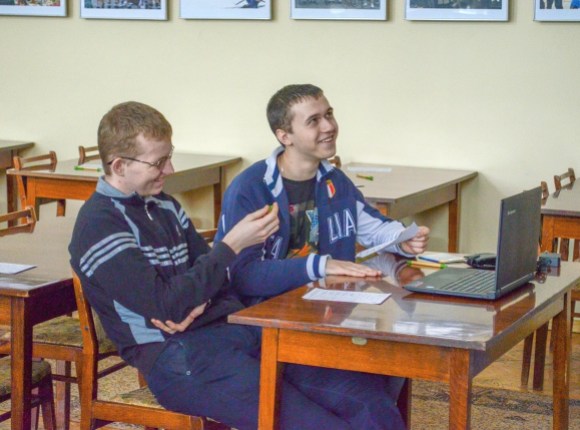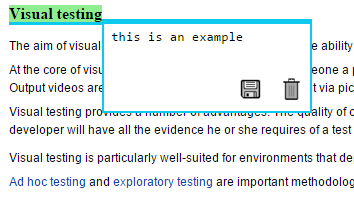
WikiComment’s creators hope that their tool will assist in putting on education programs, like the one seen here in Ukraine. Photo by Star61, freely licensed under CC BY-SA 4.0.
Sites that rely on the cooperation of people need to be able to easily exchange information. When there are some problems with an article, you could always add some templates to specific places or point to them on talk page—but that can sometimes be painful and time consuming.
The problem can grow even greater when articles are written inside a Wikipedia Education Program. You may need to follow up with hundreds of students and provide them feedback so that they can easily understand what should they fix. This can be a rather tricky job when dealing with people who have never before written to Wikipedia.
For example, in Estonia we have a course called “Estonian Composition and Conversation” in the University of Tartu, where there are on average more than 200 students per year writing articles on Wikipedia. We are keenly interested in providing good quality feedback, but with that number of students and with the use of the usual wikisystem, that is hard to achieve.
So we needed a solution.
When using the usual method (the talk page), you need to point out where are all of the mistakes located and then express your concerns about them. With a lot of comments, that does get rather messy and it’s hard to understand where are those comments directed to; it’s not an ideal medium for feedback in massive scale and not that useful for neither the students nor the person giving feedback. So the goal was simple: to ease the process of giving feedback to students who write wikiarticles as their coursework.
What we did was to create a system called WikiComment.
What does it do? Well, at first it allows to add comments to exact letters/sentences/paragraphs to speed up the commenting process and make it easier to locate the issues. In addition to adding comments, it also provides various highlighting options and a possibility to strike through text. Secondly, it allows for better monitoring of the articles of interest. That means the wikiComment user has information about which pages have been modified and he or she can easily check if the changes have solved the marked questions.
We hope that this will make it easier to focus on text and to the quality of writing.
Obviously WikiComment could be used outside the education initiative and in many other ways as well, but that is just how it all started. For example we’ll soon add support for sites like Meta-Wiki, Wikisource, Wikivoyage, Wikinews, and Wikiquote, among others. Having a discussion about some details in grant request or talking about local tourist sites may have just become easier. But to really optimize the system and to make it as good as possible we’ll need your feedback, so please go on and test that site—if you have any suggestions, just let us know.
Ivo Kruusamägi, Estonian Wikipedian

WikiComment in action. Screenshot by Ivo Kruusamägi, freely licensed under CC BY-SA 4.0.
In brief
Ed Erhart, Editorial Associate, Wikimedia Foundation

Can you help us translate this article?
In order for this article to reach as many people as possible we would like your help. Can you translate this article to get the message out?
Start translation